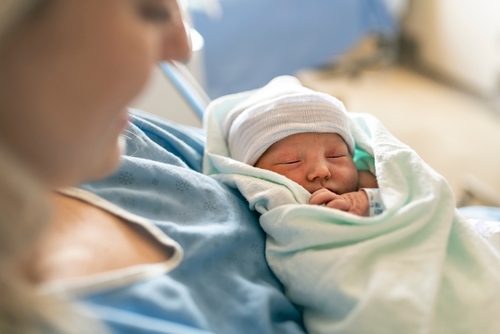Since April 2024, Nottinghamshire Police has been conducting an investigation into serious injuries and deaths related to maternity care given at the Nottingham University Hospitals (NUH) NHS Trust. On 27 May 2025, the leader of the investigation dubbed ‘Operation Perth’, Detective Superintendent Matthew Croome, announced the police force would undertake a corporate manslaughter investigation into the Trust.
Operation Perth, the remit of which covers Nottingham City Hospital and Nottingham Queens Medical Centre (both part of the NUH Trust), is one of the largest investigations of its kind in the history of the NHS. The police have confirmed they will consider whether overall responsibility for failures at the Trust lies with the organisation itself rather than with individuals and explicitly if “there is evidence that the Nottingham University Hospitals NHS Trust has committed this offence.”
Failings at the NUH Trust have been the subject of broader scrutiny. Nottingham Magistrates Court levied a £1.6m fine on the Trust, the largest ever related to maternity care, following its failure to provide safe care and treatment for three babies and their mothers. The court found that a ‘catalogue of failures’ by the Trust led to the deaths of Adele O’Sullivan, Kahlani Rawson and Quinn Parker in 2021.
What does a corporate manslaughter investigation entail?
Corporate manslaughter is a serious criminal offence, the legal status of which is defined under the Corporate Manslaughter and Corporate Homicide Act 2007. For a corporate manslaughter finding to be made, the relevant organisation must be found to have been grossly negligent in the management of its activities, which has then led to an affected person’s death.
The Sentencing Council published definitive guidelines for corporate manslaughter, in effect since February 2016, which allow the imposition of theoretically unlimited fines depending on the size and nature of the organisation (though there is no upper limit, the guidelines suggest a range of £180,000 to £20 million). The court hearing the case can also impose remedial orders requiring action by the organisation to remedy failures at management level, and publicity orders requiring the organisation itself to make the public aware of the failings found.
Harriet’s story
Investigations into failures at the NUH Trust follow years of campaigning by bereaved parents, including Dr Jack and Sarah Hawkins whose daughter Harriet died at Nottingham City Hospital. Both parents had previously worked at the Trust; their baby daughter was stillborn in 2016 after more than 40 weeks of a trouble-free pregnancy.
While the hospital management denied liability in the first instance, an external review concluded the death was “almost certainly preventable”, culminating in Dr and Mrs Hawkins receiving a £2.8m settlement, believed to be the largest for a stillbirth medical negligence case.
Anita Jewitt, Partner and Head of Medical Negligence at Stewarts, comments…
“The announcement of a corporate manslaughter investigation into Nottingham University Hospitals NHS Trust marks a pivotal and sobering moment in the pursuit of accountability following maternity failures at the Trust. This investigation is being structured in tandem with the Donna Ockenden review, which is estimated to be reviewing 2,500 family case files. Safe, compassionate care during childbirth is not a luxury, but a fundamental right every mother and family should be able to count on. It is important that families receive the support they need during this time, whilst Nottinghamshire Police carry out their investigations.”
Senior paralegal Karen Calverley contributed to this article.
You can find further information regarding our expertise, experience and team on our Medical Negligence page.
If you require assistance from our team, please contact us.
Subscribe – In order to receive our news straight to your inbox, subscribe here. Our newsletters are sent no more than once a month.






